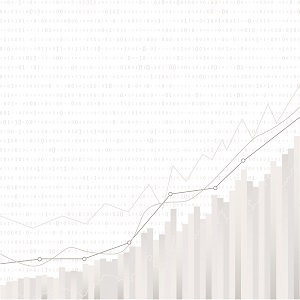25 November 2019
BBC Radio News broadcasts the value of the FTSE100 index in every bulletin, most newspapers cover it daily, and of course it is possible to check it online on a myriad of websites, but does it measure anything of real relevance to our daily lives or business interests?
In the beginning
As the name suggests, the Financial Times Stock Exchange 100 Index contains the 100 companies with the highest market capitalisation listed on the London Stock Exchange. To be precise, there are in fact 101 companies as Royal Dutch Shell has its A and B shares listed separately.
The Index was set up at the value of 1,000 on 3 January 1984 as a joint venture between the Financial Times and the London Stock Exchange, although the FT is no longer involved. To be eligible for the Index, a company must have a full listing on the LSE, denominate its share price in Sterling, Dollars or Euros on the Stock Exchange Electronic Trading Service, and fulfil various requirements relating to nationality, free float[i] and liquidity.
[i] Free float is the market value of a company’s shares that are actually available for trading.
Originally intended as an indicator of UK business prosperity, in 1984 it included many household names such as MFI, Marks and Spencer, Boots and Tesco. Its roots in the UK economy were emphasised by the number of companies whose name contained the word ‘British’, including British Aerospace and British Petroleum.
Onwards and upwards
The combined market capitalisation of the Index was £160 billion in January 1984 and is now about £2 trillion. It represents approximately 81% of the total market capitalisation of all the shares quoted on the LSE. The index itself, starting at 1,000, peaked at an intraday value of 7,903.50 on 22 May 2018 and is now around the 7,300 mark. If you had bought a tracker bond in 1984 you would therefore have achieved an average annual growth rate of 5.6%, and in fact even more if you include dividends earned. That said, this calculation does not include the effects of inflation or take account of fund managers’ charges.
How relevant?
It is worth noting that during the last four years the FTSE100 seems to have floated serenely above all the political chaos and economic uncertainty. Its highest value was attained in May 2018 when many were predicting a no-deal Brexit within 10 months. The reason is that it no longer truly reflects the fortunes, expectations and aspirations of British business.
Over the last 36 years, there have been many changes through mergers and acquisitions, insolvencies, and new listings. In addition, every quarter the list is reviewed and reshuffled. Companies that have fallen below the top 110 by market capitalisation are demoted, and companies that have become one of the top 90 are promoted to the Index. In the most recent reshuffle, Marks and Spencer, a member since the beginning, was relegated. Now only 25 of the original 100 remain, and there are about 260 names of companies that have been but are no longer, included (many of which no longer exist).
No longer representative of the UK economy
The Index is no longer a typical cross-section of the UK economy. As an example, the motor industry and high-tech industries are seriously under-represented, but Financials, including the global bank HSBC, now comprise 19.8% by value and 19 in number. In fact, UK based businesses have largely been replaced by multi-nationals with about 70% of their activity taking place overseas. Only 71 of the 100 companies report in Sterling, while 21 report in Dollars and 8 in Euros. This means that the value of the index tends to vary in inverse proportion to the value of Sterling. So after the EU referendum, when the pound fell 12.8% against the dollar, the currency translation effect caused the Index to rise by 10.4%.
So the FTSE 100 is much more a bellwether of the global economy than that of the UK. For investors this is not necessarily a bad thing. Managers of pension funds, ISAs and similar investments will invest your money both within and outside the UK, depending on your stated risk profile. If, however, you need a yardstick by which to assess the future prospects of your business in this country I suggest that your decisions should be in no way influenced by the fluctuations of the FTSE 100. There are better measures of UK business sentiment, including the FTSE 250, which contains a far greater proportion of companies whose activities are mainly in this country.
None of the above is intended as investment advice, but if you need such advice we can recommend a qualified and regulated financial adviser. If you would like help with developing or managing your business, why not contact me at a.hulse@uhy-uk.com or use our contact form.


